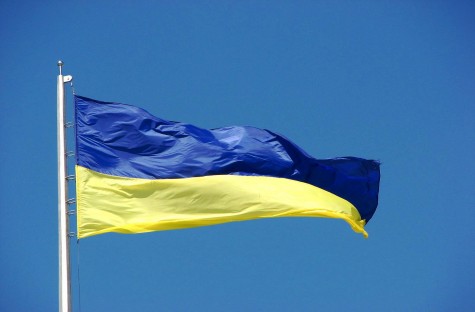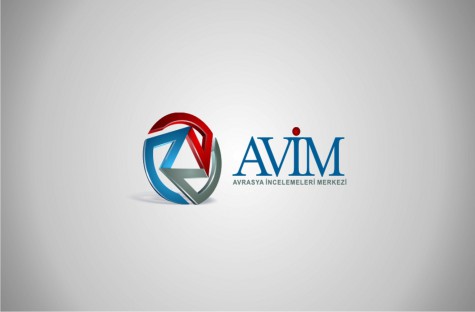Harut Sassounian is an American columnist of Armenian origin. He is known for always supporting extreme nationalist views and showing great reactions towards events, rebuking from time to time Turkish, Armenian and American statesmen and politicians and giving advice to them. Thus, due to these qualifications he is highly admired and frequently read by the Diaspora Armenians. He is a person who must be taken seriously due to his influence over the Armenian Diaspora rather than the value of his writings.
In one of his articles last week entitled “Frequently Asked Questions on Armenian Demands from Turkey”, he expressed that with 2015 approaching, he will respond to some fundamental questions regarding Armenian territorial demands from Turkey.
One of these questions was “Isn’t it a Fantasy to expect that Armenians will ever Regain Western Armenia (Eastern Anatolia)?” In response, he said that Turkish leaders will not voluntarily hand over to Armenians a single inch of land, therefore Armenians have to wait for unforeseen developments to occur in and around Turkey—such as civil war, global or regional conflict, revolution, Kurdish insurrection, natural disaster, or nuclear catastrophe— that bring about a power vacuum and possible border changes in that part of the world. In response to another question on “If Western Armenia is freed, wouldn’t the overwhelming majority of the population and elected officials be Kurds and Turks, making Armenians a small minority in their own homeland?”, he stated that demographic changes resulting from unforeseen circumstances in the region shall determine how many Kurds, Turks, or even Armenians remain in the area. Therefore, one cannot automatically conclude that Armenians would become a minority in Western Armenia.
In short, Sassounian expects that a great development (civil war, global or regional conflict, revolution, Kurdish insurrection, natural disaster or nuclear catastrophe) will occur making it possible for border changes to take place in and around Eastern Anatolia. He expresses and hopes that this development will to a great extent cause the Turks and Kurds to be killed and therefore, the Armenians will be able to gain the majority and Eastern Anatolia could then unite with Armenia.
Of course this is only a fantasy. Currently and in the discernible future there is not a single indication that such a development could occur in and around Eastern Anatolia. On the other hand, there is also no explanation to why such a development will not affect Armenia and the Armenians; in other words, why the Armenians will survive while the Turks and Kurds are killed. However, apart from these, expecting and even hoping for some disasters to take place and for Turks and Kurds to be killed just to gain territory creates a serious ethical question. This kind of idea could only be the result of a deep racist hatred.
Although it could have an affect over the Diaspora, it could be thought that not too much importance should be attached to these kinds of insane delusions of a columnist. However, this kind of mentality is very common among the Armenians and even though indirectly, is actually embraced by high-level Armenian statesmen. We will only provide two examples.
In 2005, in response to a question concerning the territorial integrity of Turkey, Robert Kocharyan, who was President from 1998-2008, had said that the foreign policy of the Government mainly entails the recognition of the Armenian genocide and that the Armenian presidents and politicians in the future should be concerned with the legal consequences of the recognition. According to the Armenians, since the legal consequences of recognizing the genocide allegations is the returning of properties to the relocated Armenians, compensation being paid to them and territory from Eastern Anatolia being given to Armenia, with his statements Kocharyan had indirectly claimed territory from Turkey, but had said that achieving this is up to the statesmen of future generations.
Current President Sarkisian carries the same view on this issue as his predecessor. Last year in July, in response to a student’s question on whether Western Armenia, including Mount Ararat, will ever unite with Armenia, Sarkisian had said that “everything depends on the young generation. Every generation has some goal to achieve”. Since this response means that future Armenian generations must work towards uniting Eastern Anatolia, including Mount Ararat, with Armenia, the Turkish Foreign Ministry had condemned this statement and expressed that giving advice to the youth and the future generations in a way that will provoke an ideology of hostility and hatred among societies is an extremely irresponsible behavior.
On the other hand, Prime Minister Erdoğan had said that statesmen ought not to inculcate enmity and hatred in future generations and that Sarkisian’s behavior is incitement, therefore it will lead Armenia’s youth into darkness and their outlook will always be through dark glasses. By also expressing that what Sarkisian meant was to say `Now you got Karabakh from us. In the future you will occupy Ararat` and that this means `Armenia could from now on enter a war against Turkey as it wants`, he had said that there can be no such diplomacy and statesmanship and that Sarkisian has made a serious mistake and must apologize for it.
As could be seen, territorial claims of the Armenians from Turkey are not recent and although in an indirect manner, still exist and are even addressed on the presidential level. Therefore, there is nothing new in Sassounian’s statements. He has tried to address under which conditions these claims could be achieved and has reached the conclusion that only if a disaster occurs and a majority of the Turks and Kurds are killed in this disaster will it be possible for Turkey to give territory to Armenia.
© 2009-2025 Center for Eurasian Studies (AVİM) All Rights Reserved
 PROSPECTS FOR PEACE IN UKRAINE? SUMMIT IN MINSK: FROM AUGUST 2014 TO FEBRUARY 2015
PROSPECTS FOR PEACE IN UKRAINE? SUMMIT IN MINSK: FROM AUGUST 2014 TO FEBRUARY 2015
 JOINT STATEMENT OF THE CO-CHAIRS OF THE MINSK GROUP ON PEACE IN NAGORNO-KARABAKH
JOINT STATEMENT OF THE CO-CHAIRS OF THE MINSK GROUP ON PEACE IN NAGORNO-KARABAKH




























